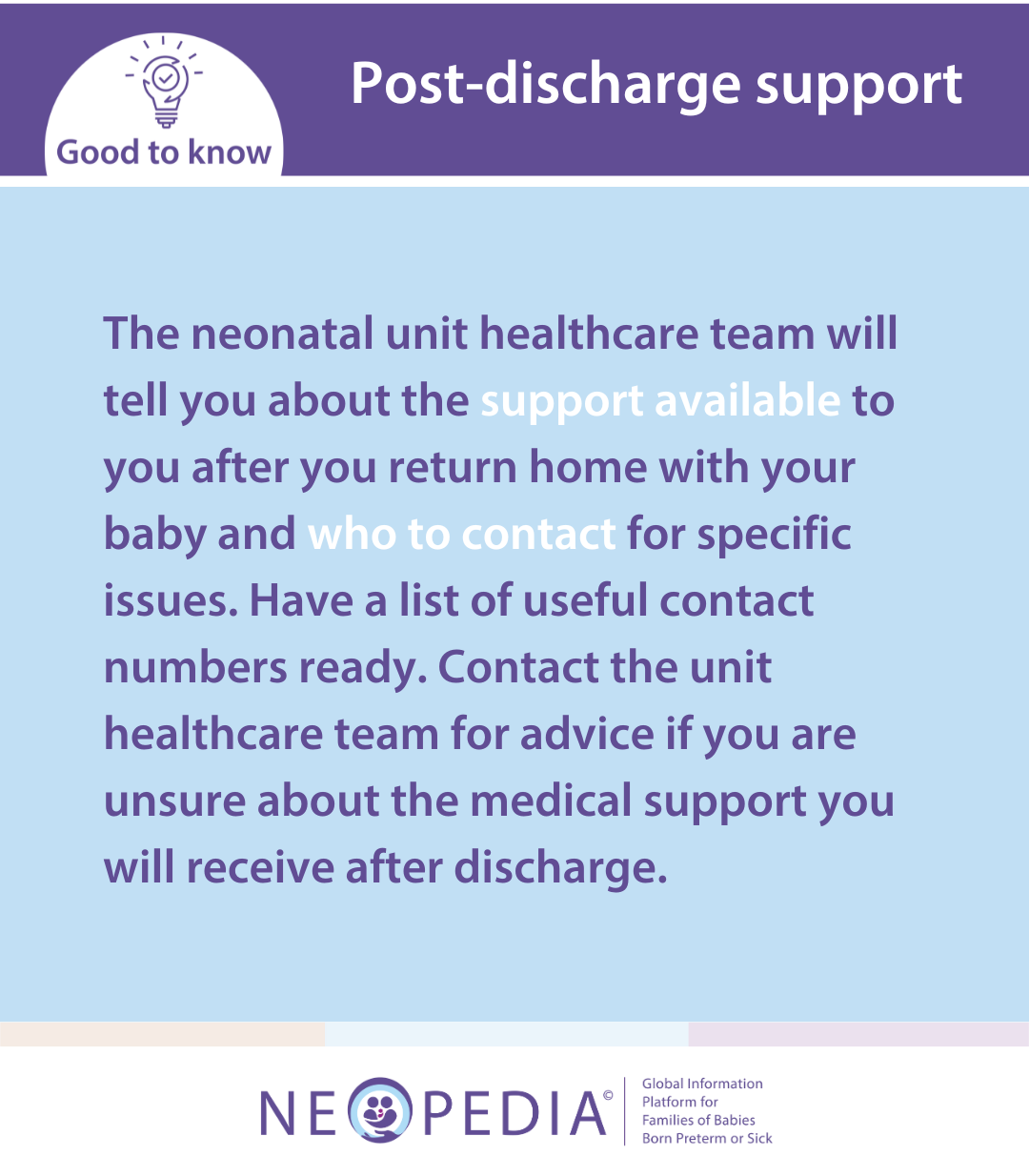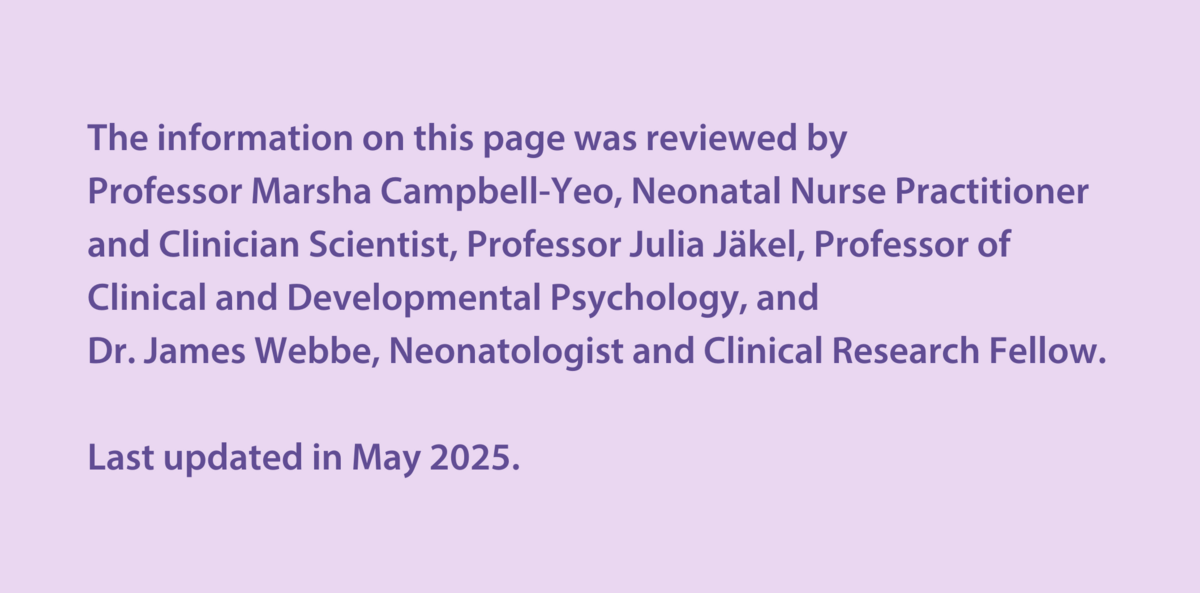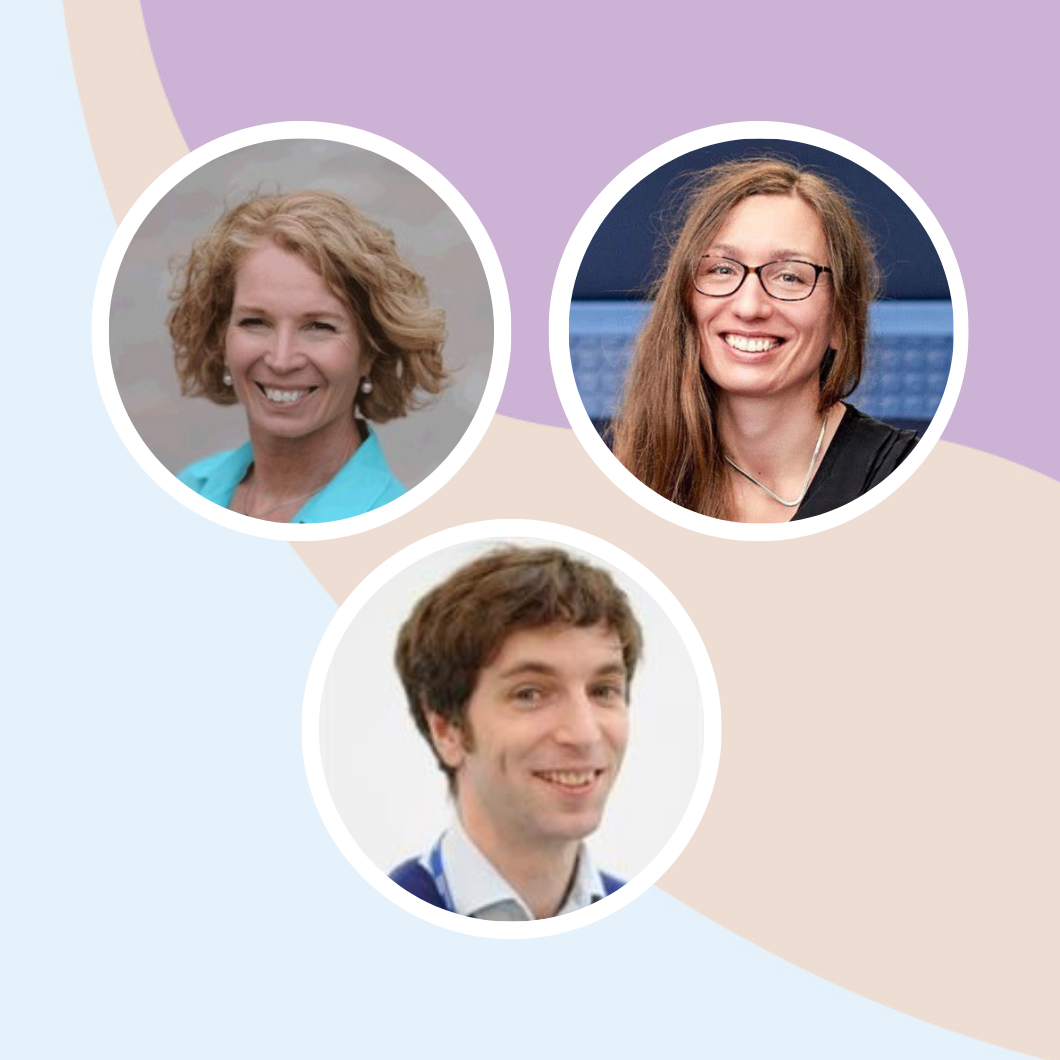
When you leave the neonatal unit with your baby, several healthcare professionals will be available to help you. They will give you advice on feeding, growth, immunization⍰, development, and general care. Keep in mind that job titles and services can vary from hospital to hospital and country to country, and you may not see all the different types of healthcare professionals listed here. Services may also be known by different names.
Language barriers can significantly affect access to care and support for the development of preterm infants and their parents. If you face language barriers, remember you can ask for a translator to help you understand and access care for your baby. Good communication is key to your baby’s development and your support.
Having a preterm or sick baby can be very stressful, and many parents, especially mothers, are at risk of struggling with their mental health. This is completely understandable, and you are not alone. Talking to a counsellor or getting professional support can really help. Taking care of yourself is an important way to support your baby’s health and development.
Some hospitals have teams of nurses or social workers⍰ who help babies move from the neonatal unit to home. These teams may be called differently depending on your region, like community outreach teams or outreach nurses, and may have different roles. Community neonatal teams usually include neonatal nurses⍰, and, in many cases, they include other support staff, like dietitians⍰ or social workers.
If your baby has ongoing needs, such as home oxygen, this team will very likely support you. You will most likely meet them before you leave the hospital, and they will visit you at home before or after you are discharged. As your baby develops, you may also be supported by a community pediatric team or a pediatric outreach team.
Midwives are healthcare professionals who play a vital role in supporting families not only before and during, but also after childbirth. They provide ongoing care, guidance, and advice, often visiting the family at home. Their responsibilities include monitoring the mother's recovery, assisting with breastfeeding, and offering advice on baby care.
Midwives are also available to answer any questions and provide support during the postnatal period, ensuring that both mother and baby receive the care they need as they transition home from the hospital. It is important to note, however, that not all midwives have specialized training in the needs of preterm babies or formal training in addressing mothers’ mental health concerns.
Your health visitor may have already spoken to you while you were in the neonatal unit, if you did not have the chance to get in touch with them before discharge, you should get their contact details before you leave the neonatal unit. In many countries a health visitor will follow your baby's development until they start school. They will perform health checks, arrange immunizations⍰, and provide information on health, home safety, and parenting. Health visitors can visit you at home or at baby clinics. In some countries, health visitors or similar professionals may not be available, or they may be known by different titles.
A pediatrician is a doctor who looks after babies and children. Babies, toddlers, older children as well as teenagers have unique medical needs that may not be fully addressed by doctors who primarily treat adults. A pediatrician is specifically trained to handle these requirements, driven by their interest and specialized education.
A neonatologist is a pediatrician who specializes in the care of preterm infants, low birth weight babies, and newborns with complex or high-risk health conditions. If your baby is born preterm, too small, or has an illness or disability⍰, a neonatologist will be responsible for managing their care. If you have concerns about your baby's health, especially past the newborn stage, a pediatrician is the best person to consult for advice.
In some countries, instead of a pediatrician, a general practitioner (GP)⍰ or also called family doctor is the first point of contact for any health concerns involving you or your baby, but there are regional differences to consider. For information in your region, visit your local parent organization’s website and/or ask your care team in the neonatal unit to ensure that you are supported by someone with experience with your baby’s condition(s).

